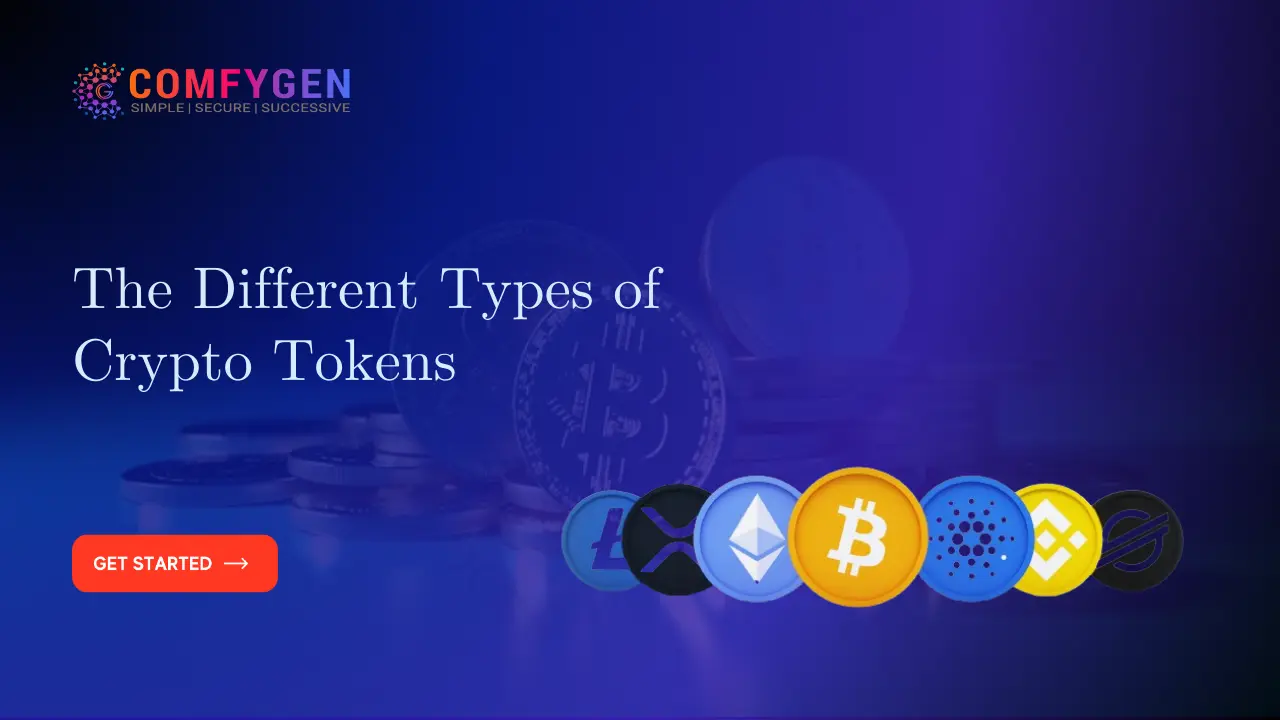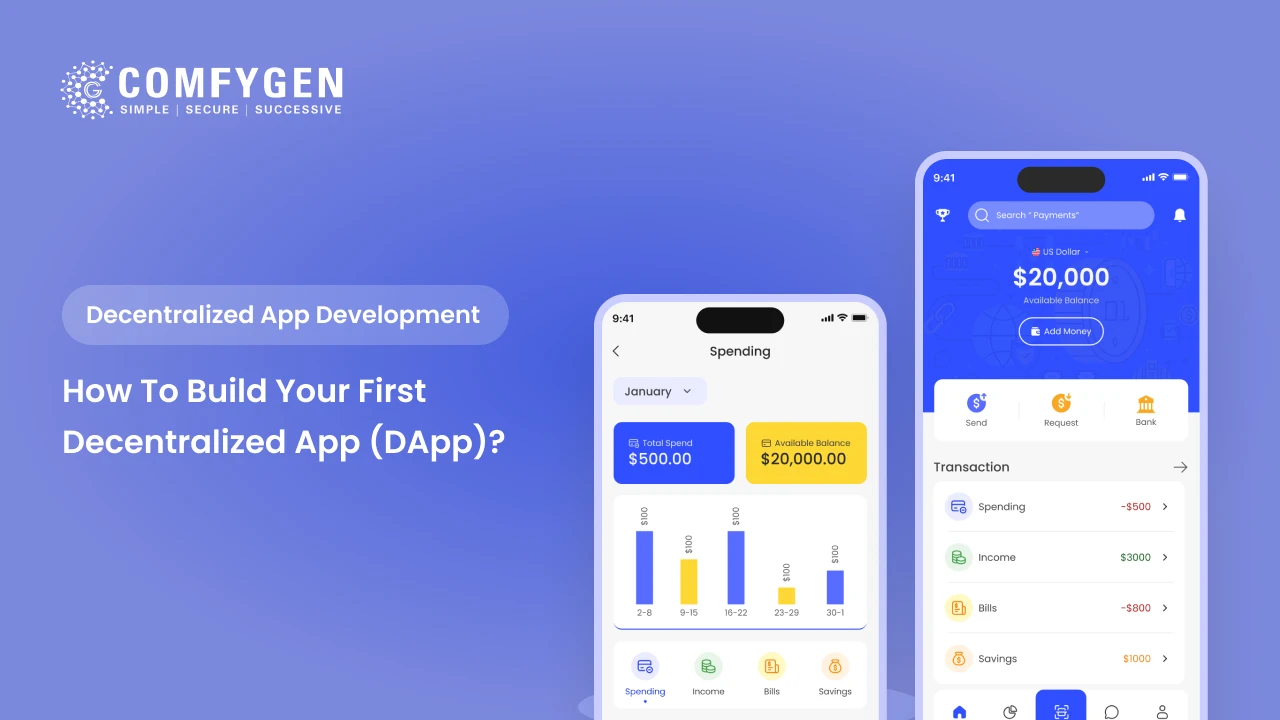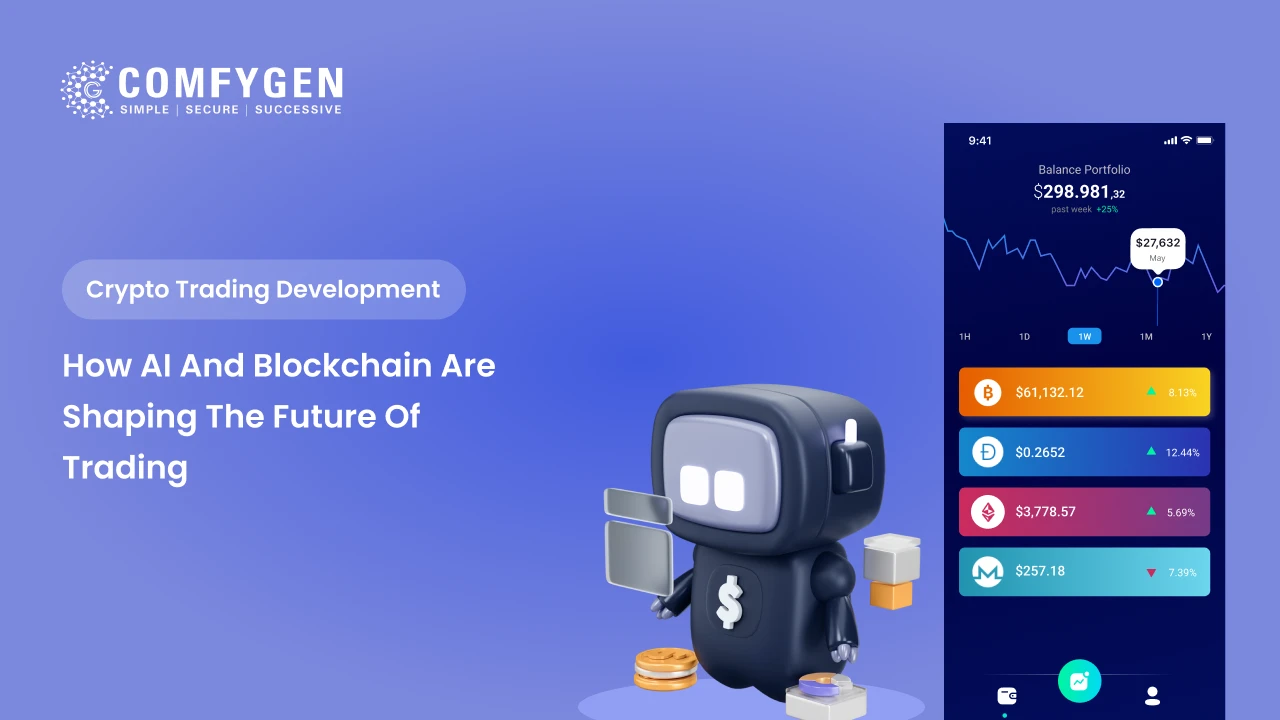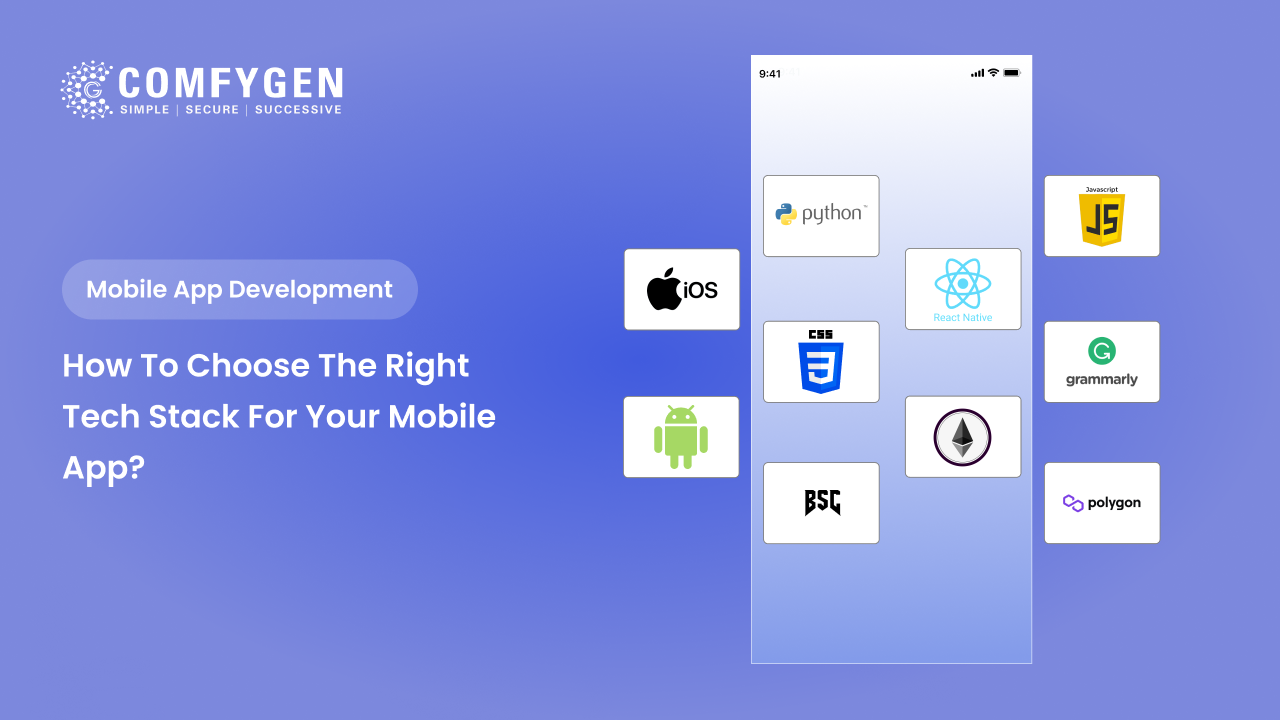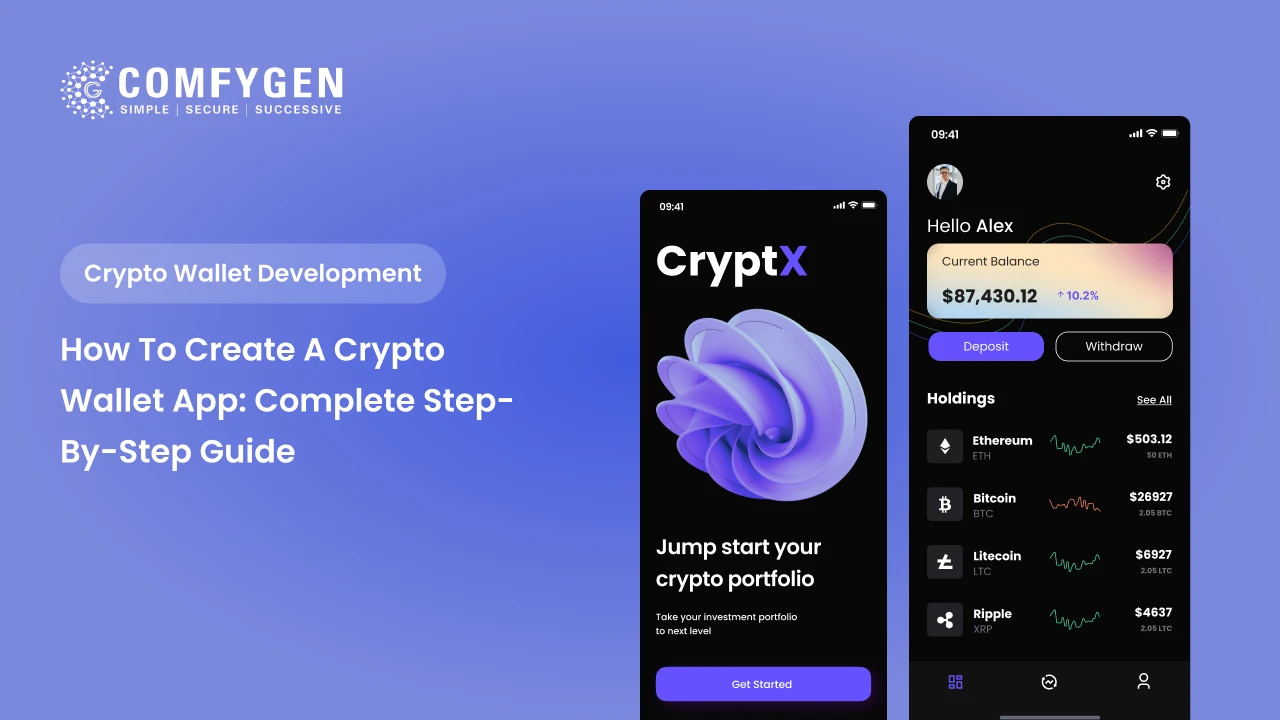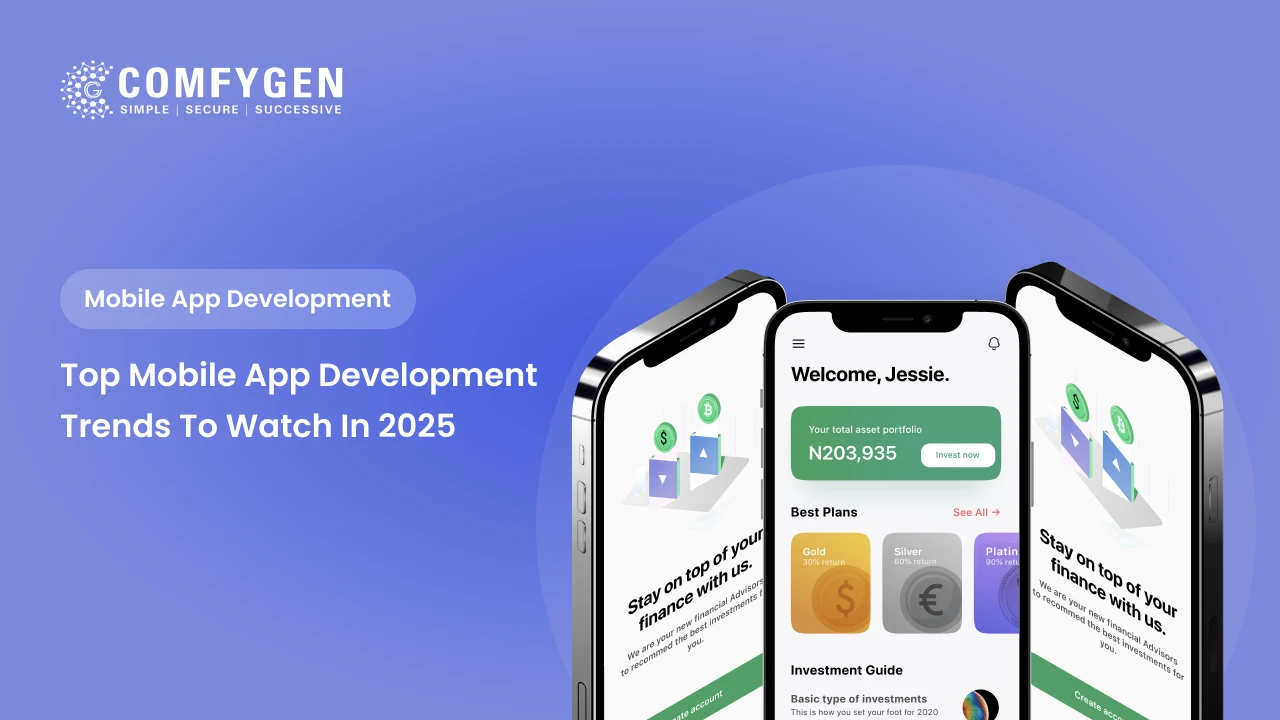The Different Types of Crypto Tokens: A Comprehensive Guide
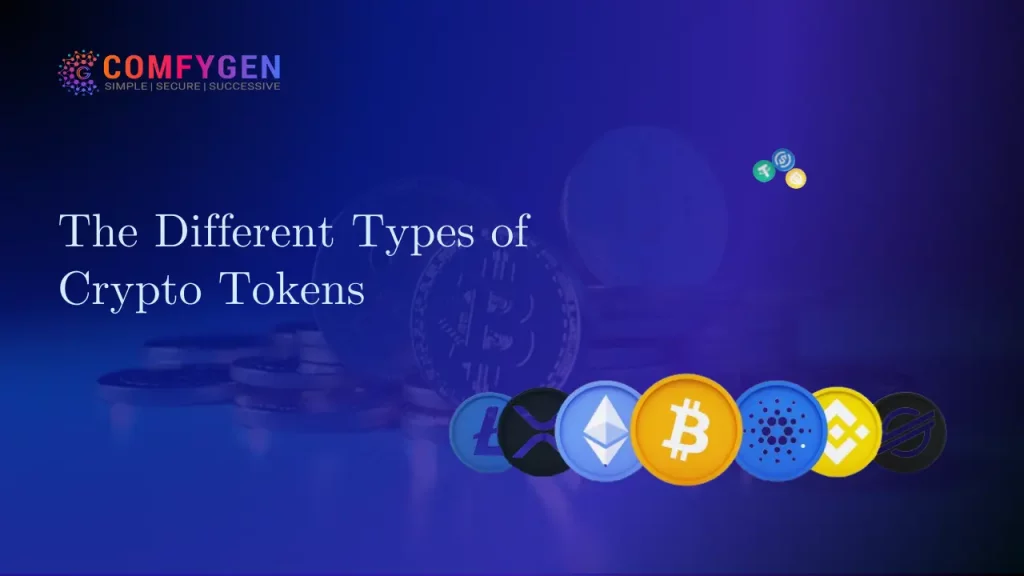
In the rapidly evolving landscape of cryptocurrency, tokens have emerged as flexible digital property with numerous functionalities and use instances. These tokens, built on blockchain generation, function the foundation for a mess of decentralized applications (DApps) development, fundraising mechanisms, and even governance systems. Understanding the various forms of crypto tokens is critical for navigating this complex ecosystem effectively. In this comprehensive guide manual, we will discover the distinct classes of crypto tokens, their precise traits, and the purposes they serve within blockchain app development.
What is a Crypto Token?
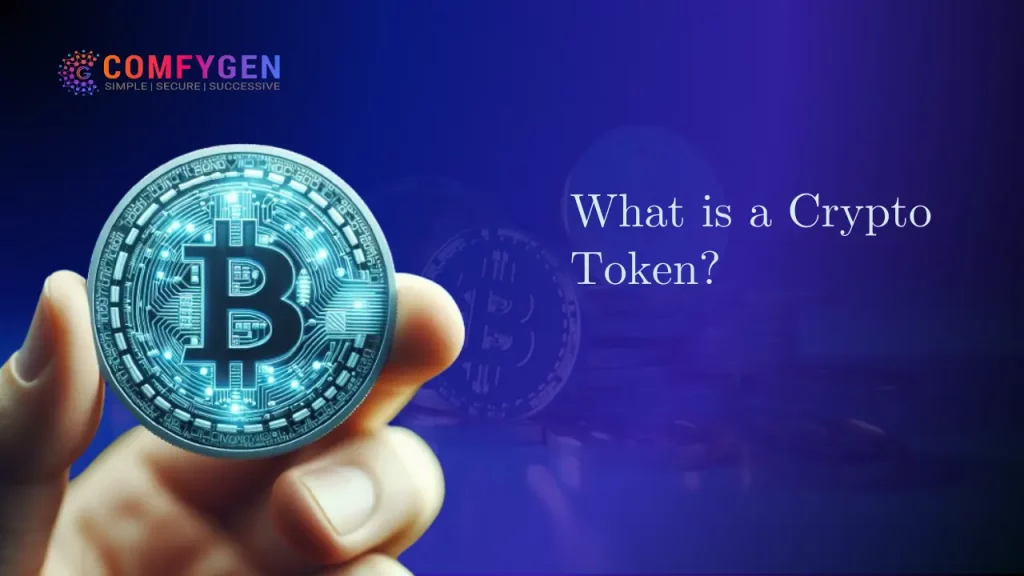
A crypto token is a digital asset or unit of value issued with the aid of a blockchain challenge, commonly constructed on top of a current blockchain app development platform like Ethereum Blockchain Development. Unlike cryptocurrencies which include Bitcoin, which perform independently on their blockchain development, tokens rely on the infrastructure of any other blockchain to characteristic. These tokens can represent diverse assets, rights, or utilities and are regularly used in decentralized applications (DApps) development for purposes that include fundraising, governance, or accessing particular offerings inside the surroundings. They allow developers to create decentralized economies and incentivize personal participation whilst offering flexibility and programmability through clever contracts.
The Difference Between Crypto Tokens and Cryptocurrencies
| Aspect | Crypto Tokens | Cryptocurrencies |
| Definition | Digital assets representing various assets or utilities are often built on existing blockchain development platforms. | Digital currencies operating independently on their own blockchain networks. |
| Issuance | Typically issued by projects or organizations | Typically mined or generated through a consensus mechanism |
| Purpose | Serve various functions within specific ecosystems | Generally used as a medium of exchange or store of value |
| Blockchain | Often built on existing blockchain development platforms | Operate on their own independent blockchains |
| Functionality | Can represent assets, rights, or utilities | Primarily used for peer-to-peer transactions |
| Use Cases | Used in decentralized applications (DApps) development | Used for payments, remittances, and investment |
| Flexibility | Programmable through smart contracts for specific purposes | Relatively limited in terms of programmability |
| Governance | Can facilitate governance mechanisms within projects | Typically do not directly enable governance structures |
| Value | Value may be derived from the success of the underlying project or ecosystem | Value determined by market demand and adoption |
| Examples | ERC-20 token development (e.g., DAI, UNI) | Bitcoin (BTC), Ethereum (ETH) |
How Crypto Tokens Work
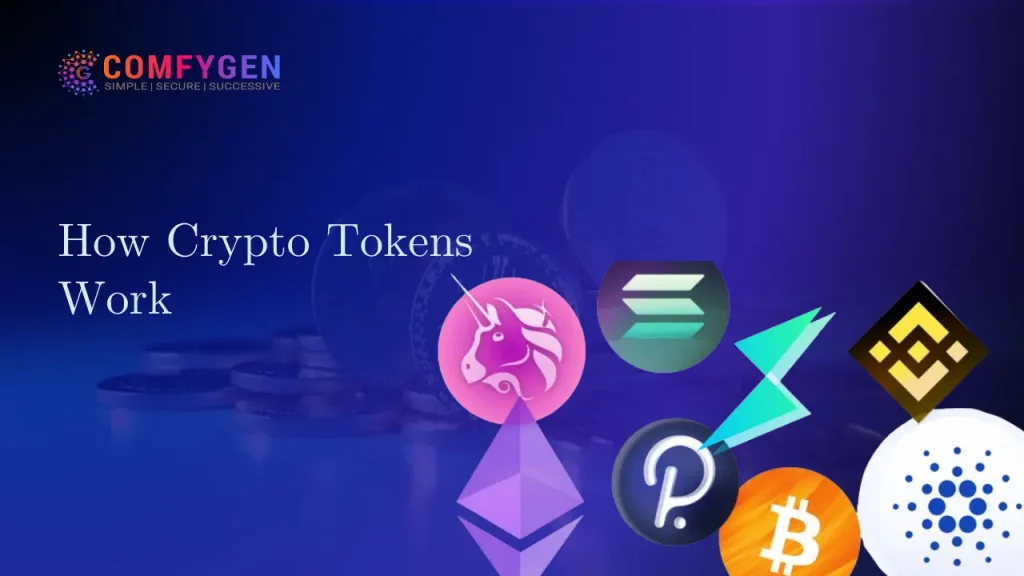
Crypto tokens work within the blockchain development ecosystem, using distributed ledger technology to facilitate transactions. These tokens are digital asset tokens that can represent ownership rights, access to services, or units of value in a particular blockchain network or blockchain development platform They are created and managed by smart contract development, to auto-execute. There are contracts, where the terms of the contract are written directly into code.
Each token type serves a specific purpose. Platform tokens are used to access and deploy decentralized application development in any ecosystem. Security tokens represent ownership of real-world assets and enforce compliance. Functioning like a traditional currency, transaction tokens are created to exchange goods and services within the network. A utility token allows access to specific services or services within a platform or protocol. Government tokens allow holders to participate in decision-making processes related to network development and transformation.
Transactions involving crypto tokens are recorded on the blockchain, a decentralized immutable ledger. The network allows participants to securely and transparently transfer tokens, without the need for intermediaries such as banks or payment processors. The essential technology ensures the authenticity and security of transactions, crypto token development a promising tool for industries as diverse as finance, gaming and supply chain management
Read More: How To Launch Your Own Cryptocurrency: Everything You Must Know
Types of Cryptocurrency Token Development Services
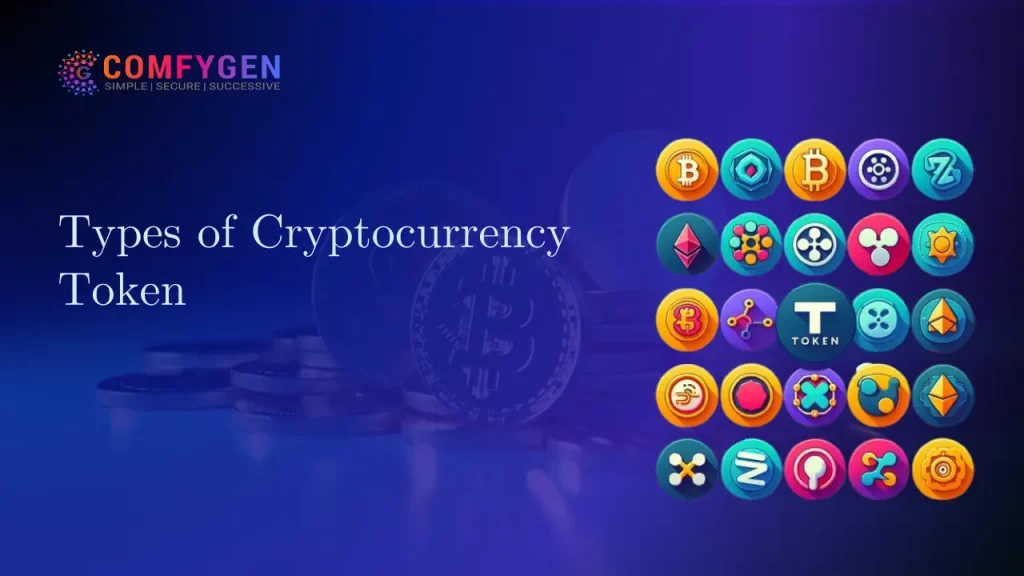
Let’s talk about the world of cryptocurrency tokens! These tokens, issued by blockchain development projects, serve as digital assets traded within their respective ecosystems. Think of them as the lifeblood of blockchain software development platforms, offering various services to users. Depending on their function, tokens offer distinctive features, akin to different types of nourishment for blockchain ecosystems. Keep in mind that tokens can belong to multiple categories simultaneously, blurring the lines between them.
1. Tokens for Platforms
Platform tokens are important in delivering decentralized applications (Dapps) through blockchain app development. While Dai maintains its status as a stablecoin, thanks to its soft peg to the US Dollar and Crypto Token Development cost maintenance mechanisms embedded in its smart contract development, it also falls under the category of platform tokens due to its Ethereum Blockchain-based Computing Platform for DApps.
2. Tokens of Security
The term “security token” emerged in response to regulatory concerns, particularly from U.S. regulatory bodies like the SEC, seeking to classify cryptocurrencies using terminology consistent with existing legal frameworks. Securities generally encompass various instruments issued by entities such as companies, trusts, or governments, representing ownership interests, debts, earnings rights, and more. Examples include bonds, debentures, shares, and warrants, which are freely traded among investors. Security tokens refer to tokens directly representing real-world securities on the blockchain or serving similar functions for digital assets and blockchain projects. For Security Token Development services, feel free to reach out to us.
3. Tokens for Transactions
Transactional tokens facilitate exchanges of goods and services for units of account, functioning much like traditional currency. Examples include decentralized cryptocurrencies like Bitcoin or Dai, enabling users to transact without relying on traditional intermediaries such as banks or payment gateways. While Dai serves as a currency, it also provides transactional benefits to other networks. For instance, xDai, developed by POA Blockchain Development Network, offers an affordable and rapid transactional token similar to Dai, residing on a sidechain.
4. Tokens of Utility
Utility tokens are essential components of blockchain protocols, enabling access to their services. Unlike security tokens, they aren’t intended for direct investment but rather for facilitating payments within their ecosystems. There’s a symbiotic relationship between platforms and utility tokens: platforms offer security for utility tokens, while tokens drive network activity to enhance platforms. For example, in Axie Infinity, players rely on Dai for a stable in-game currency, ensuring a robust in-game economy. Other projects like Cryptocup leverage Dai’s stability to enhance user experience and functionality.
5. Tokens for Governance
As decentralized protocols expand and evolve, there’s a growing necessity to refine their decision-making processes. On-chain governance enables stakeholders to collaborate, debate, and vote on system management. This system is typically powered by governance tokens, allowing holders to signal support for proposed changes and participate in voting for new proposals. For instance, MKR serves as the governance token in the Maker Protocol.
6. Non-fungible token (NFT) Development
Non-fungible tokens represent unique digital assets on blockchain software development, such as art, collectibles, or virtual real estate. Our NFT token development services enable clients to create, tokenize, and trade these unique assets, unlocking new opportunities in the digital economy.
7. DeFi Token Development
Decentralized Finance (DeFi) tokens power the innovative financial applications built on blockchain networks. We offer DeFi token development services to help clients launch their own DeFi projects, including decentralized exchanges, lending platforms, and yield farming protocols.
8. Ethereum Blockchain Development
Ethereum is a leading blockchain app development platform for building decentralized applications (Dapps) development and smart contract development. Our Ethereum blockchain development services empower clients to leverage Ethereum’s robust infrastructure for creating scalable, secure, and interoperable blockchain application development solutions.
9. Ethereum Token Development
Ethereum-based tokens are digital assets created and managed on the Ethereum blockchain. Our Ethereum token development services assist clients in creating custom tokens for various use cases, including utility tokens, security tokens, and stablecoins.
Want To Develop Cryptocurrency Token
10. Polygon Token Development
Polygon is a layer 2 scaling solution for Ethereum blockchain development, offering high-speed and low-cost transactions. Our Polygon blockchain development services help clients deploy tokens on the Polygon network, enhancing scalability and reducing transaction fees for their decentralized applications.
11. TRON Token Development
TRON is a blockchain software development platform known for its high throughput and scalability. Our TRON token development services enable clients to create tokens on the TRON network, tapping into its vibrant ecosystem for building decentralized applications and digital assets.
12. Cryptocurrency Wallet Development
Cryptocurrency wallets are essential tools for securely storing, managing, and transacting digital assets. Our cryptocurrency wallet development services deliver feature-rich and user-friendly cryptocurrency wallet solutions tailored to our client’s specific requirements.
Read Also: How Much Does It Cost to Make a Crypto Wallet App?
13. Metaverse Token Development
Metaverse tokens are digital assets used within virtual worlds and online gaming environments. Our Metaverse token development services assist clients in creating tokens optimized for immersive experiences, enabling seamless transactions and interactions within the metaverse.
14. Solana Token Development
Solana is a high-performance blockchain development platform known for its fast transaction speeds and low fees. Our Solana token development services help clients harness the power of Solana to create scalable and efficient tokenized applications.
Read More: What is Solana Token?
15. Whitepaper Development
Whitepapers are crucial documents that outline the vision, blockchain technology, and roadmap of a blockchain development project. Our crypto whitepaper development services assist clients in crafting comprehensive and compelling whitepapers to communicate their project’s value proposition to stakeholders and investors
16. Equity Token Development
Equity tokens represent ownership shares in real-world assets, such as stocks, bonds, or real estate, on a blockchain application development. Our equity token development services enable clients to tokenize traditional assets, unlocking liquidity, transparency, and accessibility for investors.
17. Avalanche Token Development
Avalanche is a blockchain development platform known for its high throughput and low latency. Our Avalanche token development services help clients launch tokens on the Avalanche network, leveraging its speed and efficiency for decentralized applications and financial services.
18. Cardano Token Development
Cardano is a blockchain software development platform known for its scalability, interoperability, and sustainability. Our Cardano token development services assist clients in creating tokens on the Cardano network, leveraging its advanced features for decentralized finance and smart contracts.
19. Cryptocurrency Consulting Services
Our cryptocurrency consulting services provide expert guidance and advice on various aspects of blockchain technology, tokenization, regulatory compliance, and market strategy. We help clients navigate the complexities of the cryptocurrency landscape and make informed decisions to achieve their business goals.
20. ICO Clone Development
ICO clone development involves replicating the features and functionalities of successful initial coin offering (ICO) projects. Our ICO clone development services enable clients to launch their own token sales platforms, leveraging proven models and best practices to attract investors and raise funds.
21. Stablecoins Development
Stablecoins are cryptocurrencies pegged to stable assets, such as fiat currencies or commodities, to minimize price volatility. Our stablecoin token development services help clients create stablecoins tailored to their specific requirements, providing stability and reliability for transactions and investments.
22. BEP-20 Token Development
BEP-20 is a token standard on the Binance Smart Chain (BSC), similar to Ethereum’s ERC-20 standard. Our BEP-20 token development services assist clients in creating tokens compliant with the BEP-20 standard, enabling seamless interoperability and integration with the BSC ecosystem.
Tokens and Coins: What’s The Difference?
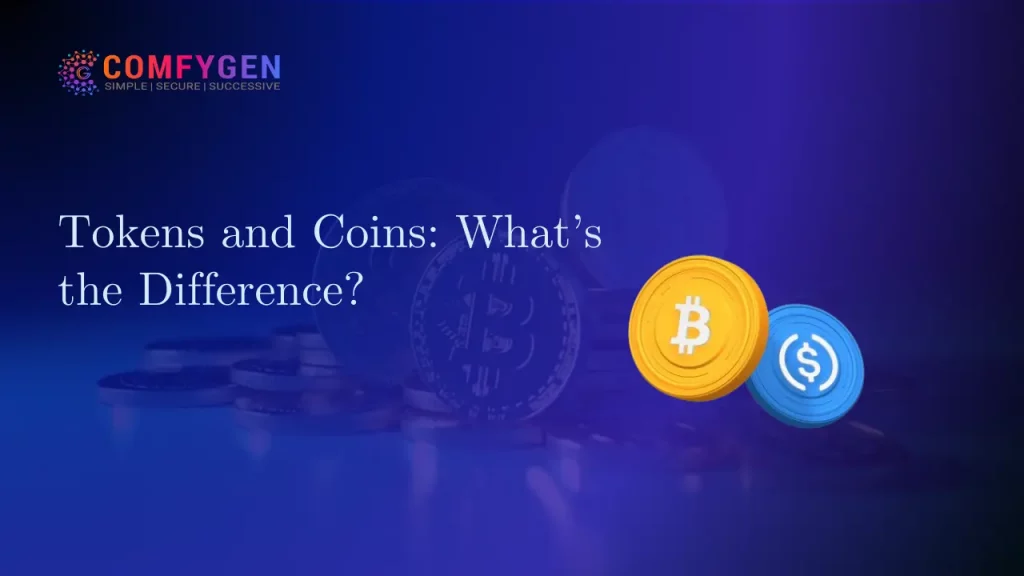
Cryptocurrencies can be divided into three types. Tokens, altcoins, and bitcoin are all included in this category.
Bitcoin
The first electronic cash independent of governments or banks, Bitcoin (BTC), was created in 2008 by an anonymous developer known as Satoshi Nakamoto. With it, you can make online payments with a lower transaction fee, and there is no central server involved.
The balances of bitcoins are maintained on a decentralized public ledger system known as a blockchain app development service, not in physical form. Public and private keys are used to decrypt the encryption of these Bitcoin token balances. In simpler terms, the public key is like your bank account number for sending and receiving bitcoins. You can authorize bitcoin transactions with your private key, which is a secret key.
Altcoins
The only cryptocurrency at the beginning was Bitcoin, but later, other projects began to emerge. Thus, altcoins were born. Litecoin, Ripple, Bitcoin Cash, or Monero are some of the cryptocurrencies you might have heard of. These and many others were born from the native platforms and blockchains of their native countries, and all of them differed from Bitcoin.
Read More: How to Choose the Right Altcoin Development Company?
According to the developers of these projects, newly-built coins such as Fantom are designed for a single-purpose use case and could be better than Bitcoin.
They changed the rules in order to compete with Bitcoin by appealing to different types of users. However, even after all these years, Bitcoin remains the market’s king, despite some of them challenging him. Altcoin development, or alternative coins, are also now popularly referred to as all the other types of crypto coins.
Want To Hire Altcoin Developer?
Tokens
It is now common for crypto tokens to be developed as a way to kickstart the crypto ecosystem. It’s almost like earning bonus miles. The more miles you have, the better it is for the airline’s ecosystem because you can’t buy a loaf of bread with accumulated miles. With crypto tokens, the same approach works!
Conclusions
The world of cryptocurrencies is both expansive and ever-changing, offering a multitude of token types each serving distinct purposes. Platform tokens support blockchain-based applications, while security tokens represent physical or digital assets. Transactional tokens facilitate exchanges of goods and services, acting as units of account. Utility tokens grant access to protocol services and are integral to their functioning. Governance tokens power voting systems on blockchain app development platforms. Tokens like the versatile Dai stablecoin showcase overlapping functionalities across categories. Understanding these token types is important for grasping how companies like Comfygen leverage blockchain technology to enable individuals and businesses to harness the benefits of digital money without being hindered by volatility.
For more info on the Cost to build Crypto Tokens, let's get connected.
Quick Contact Us :
Call/WhatsApp: +91 9587867258
Email: [email protected]
FAQs
What are cryptocurrency tokens?
Cryptocurrency tokens are digital assets created and managed on a blockchain development network. They can represent rights to ownership, access to services, or values in a particular ecosystem.
How do cryptocurrency tokens differ from coins like Bitcoin?
While Bitcoin and other currencies have their own independent blockchain and are primarily used as a medium of exchange, tokens operate within the existing blockchain network and serve purposes such as access to services or estate agents
Are cryptocurrency tokens secure?
Cryptocurrency tokens leverage blockchain development, which provides security through cryptographic encryption and decentralized consensus mechanisms. Transactions involving tokens are recorded on an immutable ledger, making them resistant to tampering and fraud.
What can cryptocurrency tokens be used for?
The uses of cryptocurrency tokens vary depending on their type. They can be used for accessing decentralized applications, representing ownership in real-world assets, facilitating transactions, granting access to specific services, or participating in governance processes within blockchain networks.
How can I acquire cryptocurrency tokens?
Cryptocurrency tokens can be acquired through various methods, including purchasing them on cryptocurrency exchange development, participating in token sales or initial coin offerings (ICOs), earning them through mining or staking, or receiving them as rewards or payments for goods and services.

Mr. Saddam Husen, (CTO)
Mr. Saddam Husen, CTO at Comfygen, is a renowned Blockchain expert and IT consultant with extensive experience in blockchain development, crypto wallets, DeFi, ICOs, and smart contracts. Passionate about digital transformation, he helps businesses harness blockchain technology’s potential, driving innovation and enhancing IT infrastructure for global success.

